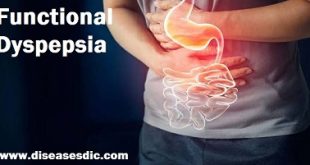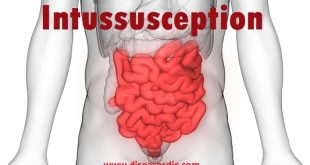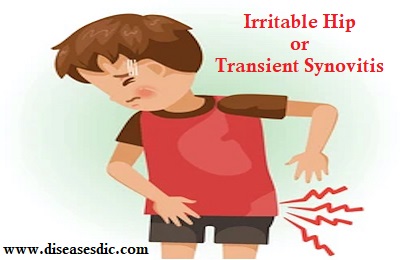Definition
Inflammatory bowel disease, or IBD, is when there is inflammation, or swelling, in the gastrointestinal (GI) tract and a lifelong immune response. The disease causes the body and immune system to think that food, bacteria and other needed things in the intestine are not supposed to be there. With this, the body attacks the cells of the bowels, causing inflammation that does not easily go away.
If you have IBD, part of your digestive system is inflamed. Over time, the inflammation can cause severe pain, diarrhea, and sometimes bloody stool. IBD symptoms come and go in episodes or flares. Because of the inflammation in your digestive system from IBD, your body cannot absorb all of the nutrients it needs. This can lead to malnutrition, other symptoms of IBD, or other health problems, such as anemia.
 Types of Inflammatory Bowel Disease
Types of Inflammatory Bowel Disease
Inflammation of the gastrointestinal (GI) tract occurs in both Crohn’s disease and ulcerative colitis, yet there is important difference between the two diseases.
Crohn’s disease
Crohn’s disease is characterized by a chronic inflammatory process that may affect any part of the GI tract, from the mouth to the anus, extending through one or more layers of the intestinal wall. It may appear in “patches,” affecting one area of the GI tract and not the next.
Ulcerative colitis
Ulcerative colitis is characterized by continuous segments of inflammation in the large intestine (colon) and the rectum. Only the innermost layer of the intestinal wall is affected.
In both Crohn’s disease and ulcerative colitis, children have periods of no symptoms (remission) alternating with periods of inflammatory symptoms (flare).
Epidemiology
Inflammatory bowel disease (IBD) affects people of all ages but usually begins before age 30, with peak incidence from 14 to 24. IBD may have a second smaller peak between ages 50 and 70; however, this later peak may include some cases of ischemic colitis.
IBD is most common among people of Northern European and Anglo-Saxon origin and is 2 to 4 times more common among Ashkenazi Jews than non-Jewish White people from the same geographic location. The incidence is lower in central and southern Europe and lower still in South America, Asia, and Africa. However, the incidence is increasing among Black and Latin American people living in North America. Both sexes are equally affected. First-degree relatives of patients with IBD have a 4- to 20-fold increased risk; their absolute risk may be as high as 7%. Familial tendency is much higher in Crohn disease than in ulcerative colitis. Several gene mutations conferring a higher risk of Crohn disease (and some possibly related to ulcerative colitis) have been identified.
Combined view of inflammatory bowel disease pathogenesis
What are the symptoms of inflammatory bowel disease?
The symptoms of inflammatory bowel disease (IBD) depend on the individual may include:
- Diarrhea, especially if bloody
- Obvious blood in the stools or black, tar-like stools
- Abdominal pain
- Fatigue
- Weakness
- Weight loss
- Loss of appetite
- Rectal bleeding
- Loss of body fluids and nutrients
- Anemia caused by severe bleeding
- Unexplained fevers
- Vomiting
Sometimes children also experience:
- Joint pain
- Inflammation of the eyes
- Liver disorders
- Osteoporosis
- Rashes
- Kidney stones
- Mouth ulcers
IBD typically includes periods of remission (when no symptoms occur) and flare-ups (recurrence of one or more of the symptoms that originally led your child to be diagnosed with IBD, such as diarrhea, rectal bleeding, and cramping). Most people with IBD experience occasional flares.
Causes of Inflammatory Bowel Disease
The exact cause of IBD is unknown, but IBD is the result of a weakened immune system. Possible causes are:
- The immune system responds incorrectly to environmental triggers, such as a virus or bacteria, which causes inflammation of the gastrointestinal tract.
- There also appears to be a genetic component. Someone with a family history of IBD is more likely to develop this inappropriate immune response.
Complications
People with IBD have a higher risk of developing colon (colorectal) cancer. Other potential complications include:
- Anal fistula (tunnel that forms under the skin connecting an infected anal gland and the anus).
- Anal stenosis or stricture (narrowing of the anal canal where stool leaves the body).
- Anemia (low levels of red blood cells) or blood clots.
- Kidney stones.
- Liver disease, such as cirrhosis and primary sclerosing cholangitis (bile duct inflammation).
- Malabsorption and malnutrition (inability to get enough nutrients through the small intestine).
- Osteoporosis.
- Perforated bowel (hole or tear in the large intestine).
- Toxic megacolon (severe intestinal swelling).
Risk factors
- Age: Most people who develop IBD are diagnosed before they’re 30 years old. But some people don’t develop the disease until their 50s or 60s.
- Race or ethnicity: Although IBD is more common in white people, it can occur in any race. Cases are also increasing in other races and ethnicities.
- Family history: You’re at higher risk if you have a close relative such as a parent, sibling or child with the disease.
- Cigarette smoking: Cigarette smoking is the most important controllable risk factor for developing Crohn’s disease.
Smoking may help prevent ulcerative colitis. However, its harm to overall health outweighs any benefit, and quitting smoking can improve the general health of your digestive tract, as well as provide many other health benefits.
- Nonsteroidal anti-inflammatory medications: These include ibuprofen (Advil, Motrin IB, others), naproxen sodium (Aleve), diclofenac sodium and others. These medications may increase the risk of developing IBD or worsen the disease in people who have IBD.
Diagnosis for Inflammatory Bowel Disease
An accurate diagnosis of IBD typically requires multiple tests that may include the following:
- Medical history review and physical assessment: a check of height, weight, eyes, ears, mouth, heart, lungs and abdominal region, as well as an anal exam
- Upper intestinal endoscopy and colonoscopy with biopsies: Procedures that use a thin, flexible tube with a lighted camera on the end to view linings of the digestive system; tissue samples are taken for lab testing
- Blood tests: A sample of blood is used to identify liver and kidney function, protein stores, iron and vitamin D, as well as other important minerals that could support a diagnosis
- Stool tests: A sample of poop can help rule out infection and assess for inflammatory cells
- MR enterography: A special type of magnetic resonance imaging (MRI) that produces detailed pictures of the affected area of the digestive system
- Video capsule endoscopy: A technique used to capture internal images of the digestive system
Intestinal endoscopy for IBD
Treatment
Although there is no curative treatment for IBD, it’s possible to reduce inflammation and address symptoms with a variety of therapies. The goals of treating IBD include stopping future flare-ups and healing inflammation in the intestines, both in the lining and on a deep cellular level. Because IBD often causes issues in different parts of the body, a multispecialty approach to care can be helpful. Specialists in gastroenterology, colorectal surgery, rheumatology, dermatology, ophthalmology and other fields work together to improve quality of life for people with IBD.
IBD treatments may include medications, surgery and a range of diet and lifestyle changes that help reduce inflammation and support the immune system.
IBD Medications
Medications are key to treating IBD. Most people with IBD will need to be on at least one medication indefinitely. The goal is easing symptoms, halting inflammation and reducing flare-ups.
It’s important to take IBD medications as prescribed, even if you start feeling better. The sooner medication starts, the better the long-term results, especially in people with Crohn’s disease.
- Immunosuppressants for IBD: These drugs are used to suppress the immune system’s attack on the intestine, and may be recommended for moderate to severe IBD.
- Topical anti-inflammatory medications: These medications, in the form of suppositories or enema preparations, can help reduce diarrhea and fecal incontinence. They are usually very well tolerated, have minimal risks, and are especially useful for mild-to-moderate cases of IBD.
- Pain relief: Relieving abdominal pain can be challenging. Pain relief is achieved with control of inflammation.
- Antibiotics: Certain antibiotics are helpful for mild-to-moderate Crohn’s disease cases, and for treating abscesses and anal fistulas (abnormal tunnels between the anal canal and the surrounding organs), as well as for inflammation of the pouch after surgery for Crohn’s disease.
- Steroids: Steroids can work with other anti-inflammatory drugs to relieve IBD symptoms and ease flare-ups. But they should be used only as a short-term treatment due to the serious side effects, such as increased risk of infections and strictures, osteoporosis, diabetes, obesity and more.
IBD Surgery
If medications do not calm the inflammation, over time the intestines can become damaged, making symptoms worse and increasing the need for surgery. About half of people with IBD may need surgery at some point in their lives to:
- Remove areas of the intestine damaged by prolonged inflammation. The surgeons aim to keep enough intestines so your body can absorb food nutrients, preventing short bowel syndrome. People who are very ill with IBD may need extensive removal of the intestine and a stoma: a surgically created opening in the body to remove waste.
- Repair blockages, strictures, abscesses or fistulas.
The reasons for surgery and the parts of the intestine that need to be treated differ from person to person. Crohn’s disease usually affects the bottom of the small intestine where it joins the large intestine, an area called the terminal ilium. Ulcerative colitis involves the colon and the rectum. Laparoscopic (less invasive) surgeries can reduce complications, and are preferable when possible.
Preventing Inflammatory Bowel Disease
IBD cannot be prevented, but there are lifestyle changes you can make to minimize symptoms. The best thing you can do is to take good care of yourself. It’s important to eat a healthy diet. Depending on your symptoms, your doctor may ask you to reduce the amount of fiber or dairy products in your diet. It also may be necessary to limit or avoid caffeine, alcohol, and carbonated beverages. In addition to eating well, you need to get enough rest and exercise regularly. It’s also important that you learn to manage the stress in your life. When you become overly upset by things that happen at home or at work, your intestinal problems can get worse.
 Diseases Treatments Dictionary This is complete solution to read all diseases treatments Which covers Prevention, Causes, Symptoms, Medical Terms, Drugs, Prescription, Natural Remedies with cures and Treatments. Most of the common diseases were listed in names, split with categories.
Diseases Treatments Dictionary This is complete solution to read all diseases treatments Which covers Prevention, Causes, Symptoms, Medical Terms, Drugs, Prescription, Natural Remedies with cures and Treatments. Most of the common diseases were listed in names, split with categories.







